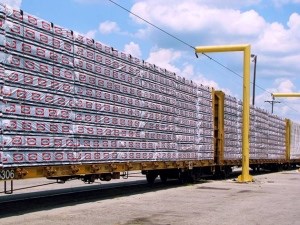Last week, the politicians were tripping over each other to celebrate Canfor’s “investment” in a new “state of the art” sawmill in Houston, which will utilize artificial intelligence and who knows what other expensive offshore automated equipment.
The CBC called it a “rare piece of good news,” even though Houston will have at least 100 fewer jobs at the end of all of this, including a two or three year period with no mill jobs other than the mill demolition and construction.
The implication of all this is that we now owe Canfor big time. There better not be anymore pesky old-growth protections, we better not ban glyphosate spraying, we better not do anything that gets in the way of Canfor’s fire-trap landscapes of moose-starving pine plantations.
Any time big city money rolls into a small town to replace the rural workforce with urban capital, you better believe we owe them.
My question is at what point did we forget about how the forestry corporations owe us?
There’s an interesting court case happening in the Supreme Court of British Columbia right now, between Teal Jones and the province over Teal Jones’ supposed “property interest” in the unceded forests on the Haida Gwaii. They are claiming the reduction of their harvesting quota in their tenure area is an infringement of their ‘private property.’ They are suing for damages. I suppose Canfor will attempt the same if their “investment” is impacted in any way.
But we never sold the rights to our public forests.
If you asked the big corporations for the bill of sale, they would come up empty handed.
Canfor may have purchased the Houston mill off a third party, but technically they only bought the mill. The associated tenure was never for sale, nor could it be. It’s public land and the rights to operate on it were never signed away in perpetuity for cash. They were always contingent on the value the public got in return, which was not only jobs, but the management of other, non-timber values, like wildlife and fisheries.
I don’t care how many hundreds of millions of dollars Canfor is investing. The investment is for their financial benefit and if history is any guide, the more these companies invest, the more jobs we lose.
Updating the Houston mill shouldn’t even be news, to be honest, let alone be touted as “good news” by our politicians and our publicly-funded broadcaster. It should be nothing more than an uneventful process in the fulfillment of a contractual requirement. The fact we believe otherwise, and spin this as a story of benevolent corporate favour, when in fact they owe us those mills, only reveals how far over the barrel the billionaire class has us.
If they hadn’t reopened the mill, that would be the news. And in that case the timber rights in that area should revert to the public on the same basis it was originally made available to the private sector.
You want the logs, you give us the jobs.
James Steidle is a Prince George writer.



